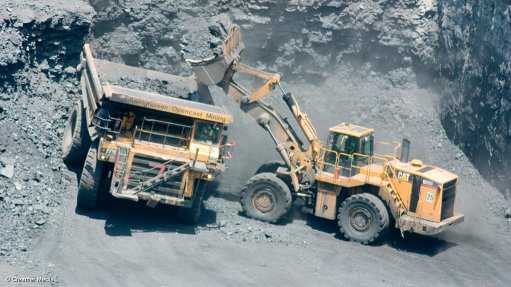
Photo by: Duane Daws
TORONTO (miningweekly.com) – The dangers posed by bribery and corruption in developing markets remains high, while the number of investigations and fines imposed by investigating bodies continues to grow, delegates at the Canada-Southern Africa Chamber of Business risk mitigation and CSR seminar were told last week.
The speed with which mandatory anti-bribery and anti-corruption principles have been embedded is comparatively recent, notably over the past two decades, Bennett Jones partner and co-head of international trade Milos Barutciski explained.
Today, policing agencies are working closely together to ensure compliance. “The US Justice Department, the UK’s Serious Fraud Office, the German prosecution service and the RCMP routinely work together,” Barutciski said. “Since the late 2000s they have been bringing about investigation after investigation, charge of the charge.”
Canada’s efforts picked up after 2007 with the appointment of an international anticorruption unit within the Royal Canadian Mounted Police (RCMP), the national police service. The courts in Canada will set fines at a level they believe to fit the circumstances; recent examples include Niko Resources, which was fined C$9-million in 2011, and Griffiths Energy, which was fined C$10.3-million in 2013.
The issue of what constitutes bribery and corruption is clear. “If you pay somebody with a public duty to subvert that duty for your business advantage then you’ve done something wrong. This does not need a lengthy legal treatise to be understood,” Barutciski stressed.
“You’re not doing yourself any favours if you buy business,” he warned. “It might work in the short run – you might not get caught – but it creates risk for the investors, shareholders, yourself and even your family.”
CSR SAFETY NET
Mining companies are now creating increasingly nuanced anti-corruption and anti-bribery strategies. “It’s important to understand the compliance and corruption risk within the sector in which you operate. The necessary procedures can then put in place, along with training that people can follow and understand,” Barutciski said.
But the strategies must be realistic and have practical application. “It doesn’t do anyone any good if your compliance officer is sitting in a tower on Bay Street [Canada’s financial heart], telling guys in the other country: ‘Somebody’s asked for a payment? Well just don’t do it’. That’s absolutely useless advice,” he added.
CSR can be an extremely effective tool as a defence mechanism against corrupt officials. “Choose the right entities, organisations and communities in which to invest your CSR dollars. In the long-term, this is an investment for the time when you’ll be shaken down [extorted], which will be likely in African, Asian or Latin American jurisdictions,” Barutciski noted.
“But if you’ve picked your stakeholders carefully, a rapacious public official, local governor or local mayor will think twice, because, even in the most corrupt states, officials must ensure business gets done and that there’s food on the table. For these reasons they will care about what your stakeholders think,” he explained.
“Therefore, stakeholders can be your second and, frankly, most important line of defence, more so than any compliance programme or legal advice,” he added.